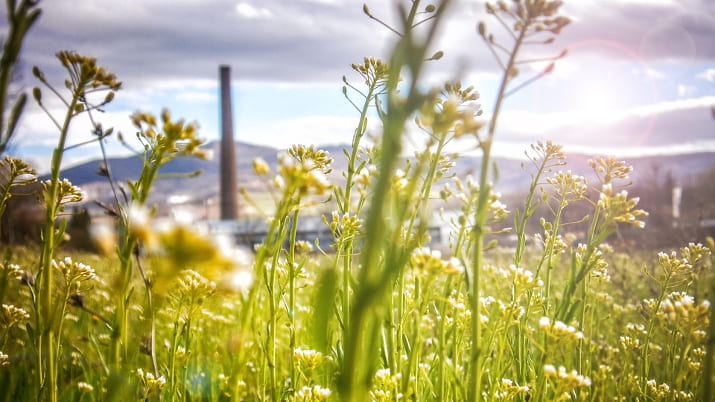The world is changing rapidly, ecologically and socially, and with ever-growing urbanization. It takes a society with deepened capacities for innovation to flourish under such circumstances. The Campuswide Honors Program’s (CHP) Sustainable Societies Track is committed to equipping students to become citizens and leaders who can address these problems.
The Sustainable Societies track is a set of courses that expose students to real world problems and challenge students to work together to come up with solutions. For those seeking preparation for life after college, Sustainable Societies helps students gain important skills such as critical thinking, group collaboration, and effective communication.
Courses are taught by top faculty from various disciplines, providing CHP students with breadth and depth in their education. Students go on to implement what they learn in their academic research, such as their capstone project, or to more practical applications in fields not limited to journalism, political science, or engineering!
To Dr. Julie Ferguson, the future of our society depends on the effective training of young people across disciplinary borders: “I enjoy that we are able to bring those multidisciplinary perspectives to study some of the greatest challenges our society faces, such as how to reduce our reliance on fossil fuels, or how to feed 9 billion people. Our students are the future politicians, engineers, scientists, economists, journalists, or business leaders who will be responsible for finding answers to these questions and reimagining our society to find a way of managing our natural resources for the long-term. There are no easy answers and I enjoy seeing students begin to understand the scale of the problem and to perceive the trade-offs we will have to make.”
Third-year Human Biology major Marvin Paguio highlights the eye-opening benefits of working together with other honors students in Sustainable Societies. His peers have taught him to reevaluate complex societal issues–each person bringing the “unique perspective that strengthens [their] conversation regarding the community as a whole.” According to Marvin, Sustainable Societies is truly far-reaching: “besides instilling the scientific foundation of climate change causation and solutions, this course has also introduced me to the social implications of climate change solutions from governance to economics.”
More personally, Marvin reports that taking this sequence has dramatically changed how he views what will be his role as a doctor: “Primarily, this course has inspired me to relentlessly expand my understanding of medicine outside my traditional science courses. I gained a critical perspective into how different environments, whether social or environmental, interact with human health. Overall, this course has inspired me to continuously seek awareness of the diverse environments and people I serve. I hope to carry this indispensable knowledge, rich collaboration, and sustainable mindset as a physician and beyond.”
For Ferguson, Sustainable Societies prepares students to make “informed and responsible decisions about how [they] can preserve and manage Earth’s limited resources for future generations in a fair and equitable way.” As such, the program seeks those students who are ready to make an impact, and who are eager to get the most out of their education. They might even discover themselves “com[ing] away from [the] sequence with a better understanding of the complexity of our natural and human systems and how interconnected everything is.”


